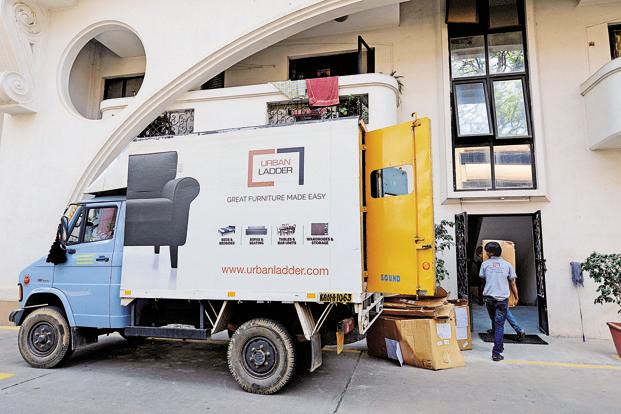
Online furniture store Urban Ladder is strengthening its modular furniture and kitchen portfolio, a segment that is expected to evolve into the second-largest category for the e-tailer after sofas and seating, accounting for one-fifth of its revenues in a year from less than 5% at present. The company will launch modular kitchen equipment by September, having already rolled out modular wardrobes in May.
Urban Ladder may explore partnerships with online property listing sites and builders to tap into new home buyers, its primary target audience for the segment, a senior company executive said. “Our next big focus will be the modular segment. We will target new home buyers,” said Prithvi Raj Tejavath, vice-president, category management, at Urban Ladder. “We want to leverage the young home buyers, as kitchen and wardrobe spends are inevitable in every household. It is more of a need than a design category.”
Home sales have hit a low over the past couple of years, but that has not deterred real estate developers from launching fresh projects to attract home buyers. According to Liases Foras Real Estate Rating and Research Pvt. Ltd, new supply of residential units in the January-March quarter rose 21% over the previous quarter.
To begin with, the modular kitchen equipment will be available in Bengaluru and expanded to Delhi, Mumbai, Pune, Chennai and Hyderabad by the end of this financial year. The company will hire 150 design consultants and fitters to execute installations of the modular ware.
“We will go for a phased expansion because this is an operationally heavy model. The on-ground team has to be trained before assigning them work,” Tejavath said.
At present, sofa and seating is the largest category for the furniture e-tailer, accounting for about one-third of its revenues, followed by dining that contributes about 17% to the company’s top line. The other big category for Urban Ladder is bedroom furniture, with 13% of the revenue share.
According to experts, while average order value for an online furniture store ranges between Rs.10,000 and Rs.15,000, the average price of a modular kitchen could be between Rs.3 lakh and Rs.5 lakh. The bigger ticket size helps add significantly to the company’s top line and consequently drive a bigger valuation.
“In the overall scheme of things, kitchen is the largest segment when it comes to interiors. A few lakhs are spent at a time, which makes it a very lucrative market,” said Harminder Sahani, managing director of advisory firm Wazir Advisors. “But, it is labour-intensive, hence a very hard one to crack.”
According to data from Wazir Advisors, the domestic furniture market is valued at Rs.90,000 crore while the modular kitchen segment is a Rs.300 billion entity.
Founded in July 2012, Urban Ladder is one of the most well-capitalized of online furniture stores, having raised $77 million from Kalaari Capital, SAIF Partners, Steadview Capital and Sequoia Capital. It also counts Ratan Tata, chairman emeritus of Tata Sons, as one of its investors. Urban Ladder competes with Pepperfry, an online marketplace for furniture that has raised $28 million from Norwest Venture Partners and Bertelsmann India Investments, and Rocket Internet-backed FabFurnish.
Given the high average order value, the modular kitchen and fit-out segment has emerged as an attractive business for most furniture stores.
Among the online businesses, Urban Ladder will be pitched against companies such as Pepperfry and HomeLane, which has so far raised $4.5 million from Sequoia Capital and Aarin Capital.
Pepperfry, for instance, allows consumers to customize colours for any order value. The company also allows a 10-15% change in dimension for orders more than Rs.1 lakh. About 8% of the furniture shipped by Pepperfry is customized.
“I do not want my customers to go to another place to buy an item because they have issues with the dimensions,” said Ashish Shah, co-founder and chief operating officer at Pepperfry. “Our competitors offer modular furniture and kitchens. But, every listing you see on Pepperfry can be customized.”







